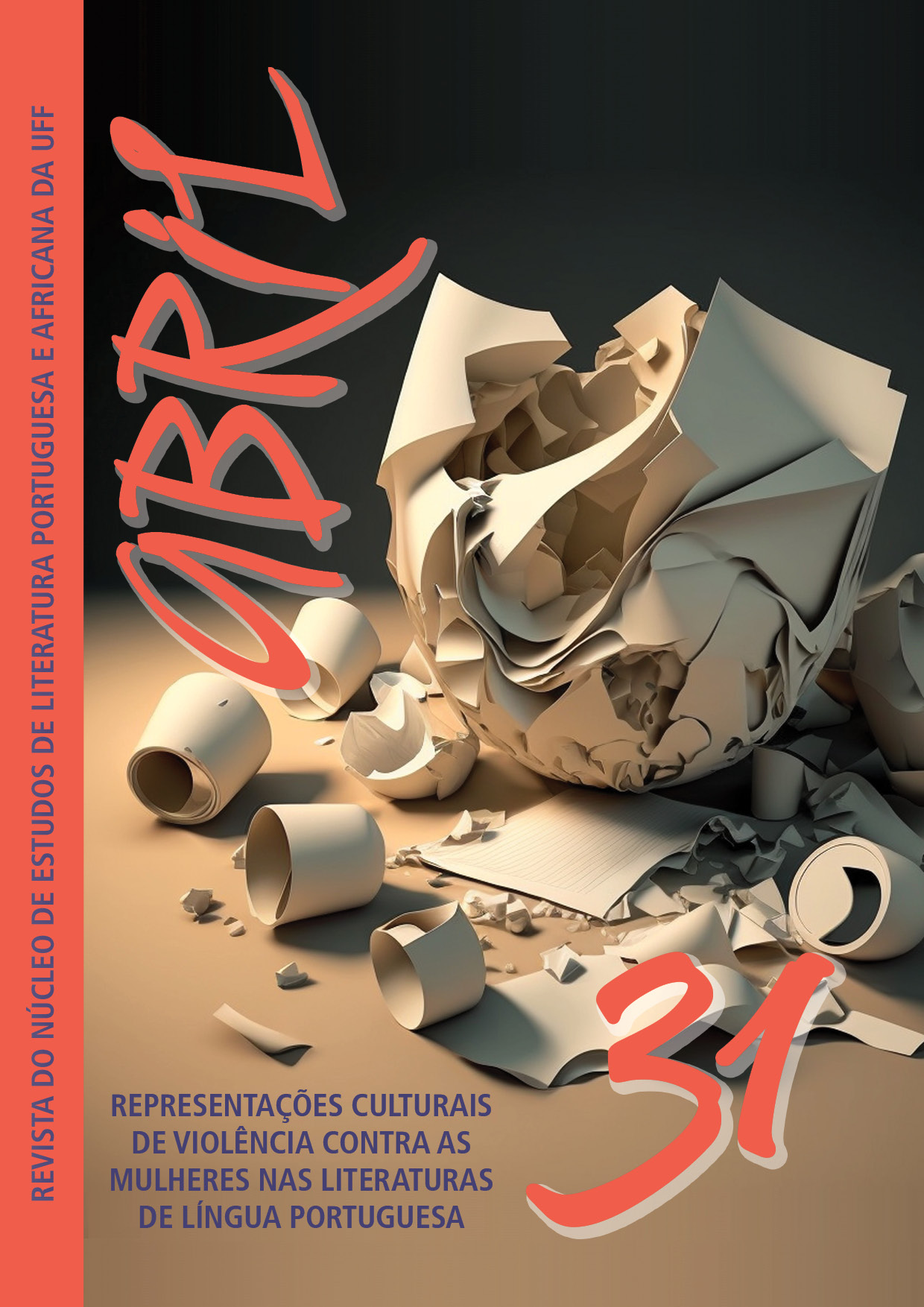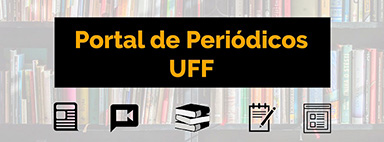‘I saw the word border’ - the multiple edges in Niketche: a story of polygamy
DOI:
https://doi.org/10.22409/abriluff.v15i31.58673Keywords:
Imagined communities, Border, Nationalism, MozambiqueAbstract
This paper analyzes the novel Niketche: a history of polygamy, by the Mozambican writer Paulina Chiziane, based on Benedict Anderson’s concept of imagined community (1991), and on cultural identities in post-modernity, as proposed by Stuart Hall (1992). Inspired by the authors Sandro Mezzadra, and Brett Neilson (2017), the analysis proposes the understanding of borders as a method of confronting colonial categories. Thus, the paper analyzes the tensions between binomials exposed in the novel, starting from the opposition between man and woman, and understanding that the very friction between borders is, in itself, a reinvention of them, and an attitude of reconstruction in the fight against violence and silencing of identities.
Downloads
References
ANDERSON, Benedict. Raízes Culturais. Trad: Denise Bottman. In: Comunidades imaginadas: reflexões sobre a origem e a difusão do nacionalismo. São Paulo: Companhia das Letras, 1991, p. 26-70.
CABAÇO, José Luís. Moçambique: identidade, colonialismo e libertação. In: CABAÇO, José Luís. O “homem novo”. São Paulo: Editora Unesp, 2009. p. 304-311.
CHIZIANE, Paulina. Niketche: uma história de Poligamia. 2ª Ed. São Paulo: Companhia das Letras, 2021.
CHIZIANE, Paulina. O mundo da mulher ficou muito escondido é preciso falar mais sobre. [Entrevista concedida a] Natalia Luz. Por dentro da África, 2018. Disponível em: <https://www.pordentrodaafrica.com/reportagens-exclusivas/paulina-chiziane-o-mundo-da-mulher-ficou-muito-escondido-e-preciso-falar-mais-sobre>. Acesso em 03 ago. 2022
CIRIACO, Maria Inês Francisca. Moçambique: diversidade cultural e linguística. Cadernos de pós-graduação em letras, v. 17, n. 1, 2017.
FURQUIM, Fabiane Miriam. O discurso modernizante da FRELIMO e a revista justiça popular: as relações entre estado, violência e modernidade, In: VIII Congresso Internacional de História/XXII Semana de História, 2017, Maringá. Anais eletrônicos [...] Disponível em: http://www.cih.uem.br/anais/2017/trabalhos/3941.pdf. Acesso em 03 ago. 2022.
HALL, Stuart. A identidade cultural na pós-modernidade. Trad. Tomaz Tadeu da Silva e Guaciara Lopes Louro.10 ed. Rio de Janeiro: DP&A, 1992.
MARTINS, Andreia. 2022. União Africana exige investigação sobre morte de migrantes em Melilla. RTP Notícias, 20 de junho de 2022.
MATTOS, Regiane Augusto de. Entre suaílis e macuas, mujojos e muzungos: o norte de Moçambique como complexo de interconexões. Estudos Ibero-Americanos 44.3, 2018.
MBEMBE, Achille. Políticas da inimizade. Trad. Sebastião Nascimento. São Paulo: n-1 Edições, 2020.
MEZZADRA, Sandro; NEILSON, Brett. La frontera como método: o la multiplicación del trabajo. In: MEZZADRA, Sandro; NEILSON, Brett. La proliferación de las fronteras. Trad. Verónica Hendel. Madrid: Traficantes de Sueños, 2017. p. 11-39.
SAN ANTONIO, Angelica Casas in; SANDS, Leo. 2022. Texas migrant deaths: At least 46 found dead in abandoned truck. BBC News, 28 de junho de 2022.
SANTANA, Jacimara Souza. Tradição Oral do Império de Gaza, Identidade Nyanga e Contestação ao colonialismo no sul de Moçambique (C. 1895-1956). Sankofa (São Paulo), v. 9, n. 16, p. 37-62, 2016.
SOUZA, Ubiratã Roberto Bueno de. A gravitação das formas: gêneros literários e vida social em Moçambique (1977-1987). 2018. f.223. Tese (Doutorado em Estudos Comparados de Língua Portuguesa) – Faculdade de Filosofia, Letras e Ciências Humanas, Universidade de São Paulo, São Paulo, 2018.
TAVARES, Ana Paula. 2015. Nova Carta de Ana na Palavra: Busco um refúgio, revolvo ruínas onde está sepultado o velho bule do chá e ordenam-me que parta sem os panos da origem e a água da viagem, as asas da noite com que já nasci ou os pés compridos de afagar os caminhos. Rede Angola.info.; 04 de setembro de 2015.
Downloads
Published
How to Cite
Issue
Section
License
Copyright (c) 2023 ABRIL – NEPA / UFF

This work is licensed under a Creative Commons Attribution-NonCommercial 4.0 International License.
I authorize the journal Abril - NEPA/UFF to publish the paper of my authorship/responsibility that I now submit, in case it is accepted for online publication.
Moreover, I declare that this contribution is original, that it was not submitted to any other editor for publication, and I sign the present declaration attesting the truth of all its contents.
The copyright of the works published at the virtual space of the journal Abril - NEPA/UFF are automatically entitled to the journal. Their total or partial reproduction is conditioned to the authors' citations and publication data.

Abril is licensed under a Creative Commons - Attribution-NonCommercial 4.0 International (CC BY-NC 4.0).









